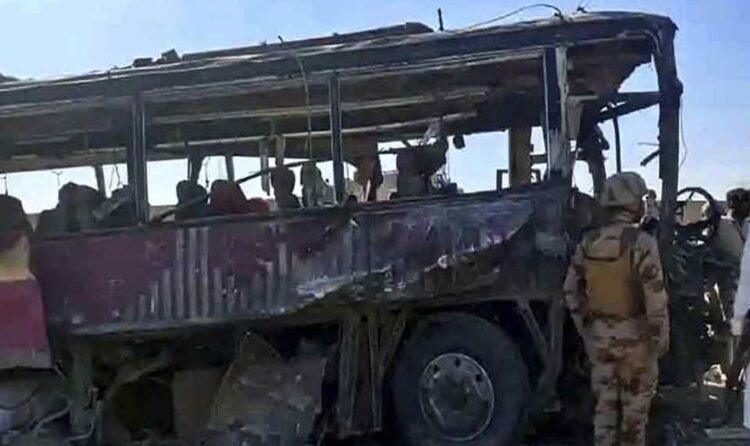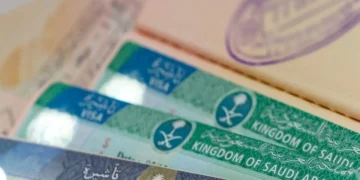Pakistan’s internal security situation Danwadol, economy suffering due to bounce in latest terrorist attacks
The attack on the military convoy by Baloch separatists after the recent dramatic kidnapping of Zafar Express is a sign of a serious security situation in Pakistan. The country’s sinking economy, the army’s frequent intervention and attempts to maintain power, as well as the inability of political parties of Pakistan during the national crisis, shows that the process of political consensus has been broken in badly polarized Pakistan. Pakistan’s claim is not wrong that it is suffering from terrorism. The Global Terrorism Index 2025 gives Pakistan as the second most terrorism -prone country. According to the report, the terrorist attacks recorded an increase of 45 percent, which increased from 748 in 2023 to 1,081 in 2024. Pakistan faces attacks from two fronts. A rebellion of a Balochistan province is- Balochistan Liberation Army (BLA) and Balochistan Liberation Front (BLF) where the tribal is now carrying out a lot of deadly attacks. The second Tehreek-e-Taliban is Pakistan or TTP, which has bombarded continuous attacks under the leadership of Afghanistan. Apart from TTP, Pakistan also has to deal with the Jihadi group Islamic State Khorasan Province (ISKP) attacks, which attack Shia mosques and institutions as well as security forces.
Violence: Video clip of BLA attack on a train going from Quetta to Peshawar
While Pakistan has accused Afghanistan, India and Iran of spreading terrorism in the country, New Delhi has denied any kind of hand in the kidnapping of Zafar Express. Foreign Ministry spokesman Randhir Jaiswal has asked Pakistan to peek inside himself instead of raising finger on others. Terrorist groups always help from outside, but the root cause is domestic, which governments forget while talking about foreign hands.
It seems that Pakistan has not taken much lesson than Bangladesh’s breakdown in 1971. The Balochistan province today is as isolated from the rest of the country as the people of Bangladesh in the past. The massive growth of terrorist attacks in Balochistan has not surprised those who monitor the incidents in the province. Public policy analyst Rafiullah Kakar is one of them. He said in a podcast that the incidents that occurred in the province in the last two years were a sign of deteriorating situation. He believes that in the absence of improvement by the state, now these incidents have come to such a point from where it is not possible to return.
Balochistan is the largest province in Pakistan and is rich in mineral wealth – gold, copper, iron, chrome and lithium. Nevertheless it is one of the least developed provinces in the country. Islamabad has exploited the natural resources of the regions from the beginning, politically marginalized and trusted corrupt Baloch politicians, while ignoring those who could make a difference. Islamabad turned his back on the people of Balochistan, while the resources received from there were used for development in Punjab and Sindh.
The tension between the government and the Baloch nationalists has been inciting the armed action by the two sides from time to time, but in 2006, when the army of General Musharraf killed the charismatic political leader Akbar Bugti of the powerful Bugti tribe, Akbar Bugti, the decisive separation of Balochistan. The rebellion that started at that time has intensified over the years. After this, whenever the government of Pakistan reached an agreement with Baloch nationalists, he broke its promises. He trusted military strength to suppress and control dissatisfaction.
The BLA and other Baloch groups target Pakistani Army, government establishments and Chinese workers. The Center for the ambitious belt and road initiative of Xi Jinping, a $ 65 billion invested in the development of projects under the China-Pakistan Economic Corridor, is the focal port of Balochistan. At the same time, China’s copper mines also have interest, China and Pakistan are collaborating in Sandak copper-Sona project in Balochistan. Hundreds of Chinese engineers and supervisors oversee construction sites in the province. According to Pakistan’s National Terrorism Authority, 20 Chinese citizens have been killed and 34 have been injured in the province since 2021, but since 2016, 60 Chinese citizens have been killed. Local people are against the Chinese. They believe that the assets of the province are being exploited to benefit outsiders, whether Pakistanis or Chinese.
The BLA has improved its strategy and operation in the last few years. He was responsible for the most deadly terrorist attack in Pakistan in 2024 when at Quetta railway station killed at least 25 civilians and soldiers by a suicide bomber. The Zafar Express used by the security forces and their families of most Punjab and Khyber Pakhtunkhwa provinces has been targeted before, but the attackers did not achieve such success. In November last year, a suicide bomber blew himself up at Quetta railway station when the train was preparing to leave. This time the hijack of Zafar Express was successful. All 26 people held hostage by the BLA were killed, 18 of them were soldiers. All 190 passengers could be rescued by the army due to a 30 -hour military campaign.
People survived narrowly in the attack
The records of security forces in Balochistan have been fatal. People have been separated from the government as a result of collective punishment, disappearance of people, judiciary killings. All the groups demanding more autonomy within Pakistan, from the aspiring groups of freedom, are united in opposing the government. The resistance movement by civil rights groups against atrocities by security forces has also led a peaceful protest of months by the local people. Women and educated young and middle classes are part of peaceful but powerful resistance movement. As the federal government is repeating the old formula for force usage, there is increasing resentment against the authorities and the sympathy for terrorists. Educated men and women are being admitted to BLA and BLF.
Pakistan’s intelligence agency is the creator and godfather of the Inter-Services-Intelligence Afghan Taliban. Top military officials of Pakistan helped the Taliban in a thick time by mediation between the Taliban and the US in Doha. When the Taliban returned to power in August 2021, Islamabad’s long -funded ambition of Pakistan’s friendly rule in Kabul came true. This led to gaiety in the official circles of Pakistan. The then Prime Minister Imran Khan appreciated the Taliban for breaking the shackles of slavery, but the Taliban government in Afghanistan promoted the ambition of the Pakistani Taliban to create a strict Islamic religious state in Islamabad. On the insistence of the Taliban, the Imran government started peace talks with TTP. The talks were led by Pakistan’s intelligence officials under the supervision of Imran Khan’s favorite general former ISI chief Faiz Hameed. Pakistan released TTP commanders, many of which were staunch terrorists, fighters and campaigners. Its leaders sat behind in Afghanistan, while the cadre and commander were now free to work inside Pakistan. Eventually, the ceasefire talks broke and TTP continued its deadly attacks on Pakistani soil with new energy and it continues even today.






